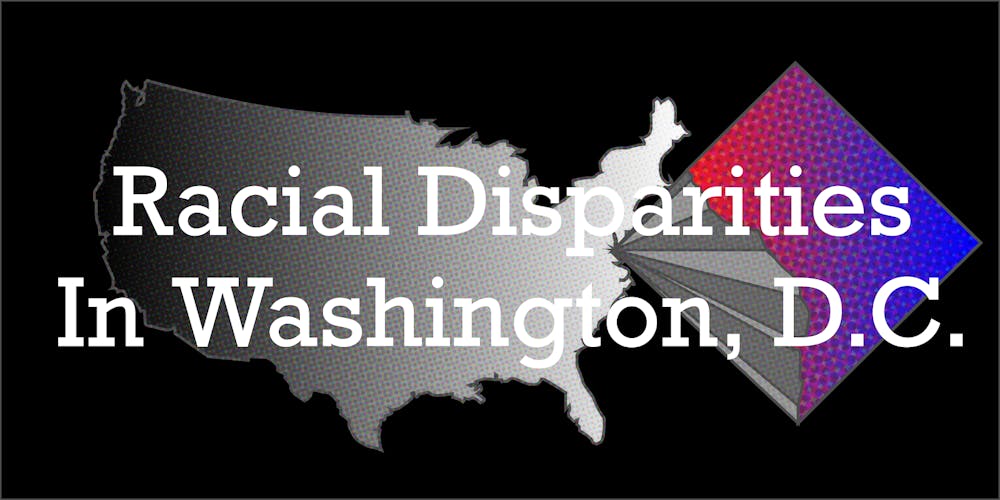A report, released by an AU professor in May, shows how race influences the daily living experiences of residents in the D.C. area.
Led by Michael Bader, a sociology professor and the associate director of AU’s Metropolitan Policy Center, the report, “Racial Disparities of Daily Living in the DC Area: Findings From the 2018 DC Area Survey,” draws conclusions about racial disparities in the D.C. area.
The report found that Black and Latino residents fear police the most and that Asian and Latino residents fear deportation the most. They also found that white residents benefit the most from the community, such as feeling well-served by institutions.
This research is a collaboration between the Metropolitan Policy Center and the Center for Latin American and Latino Studies. The report is based off of a mailed survey to 8,800 households in the D.C. area that asked varying questions on perceptions of local institutions, policing, immigration and neighborhoods. Results from the survey were then analyzed, based on race, specifically white, Black, Latino and Asian residents.
The survey received a 12 percent response rate, meaning they collected 1,061 responses.
Bader’s primary interest and focus is to explore racial inequality in the United States. As the primary researcher, he sought to explore how the D.C. metropolitan area might act as a microcosm of nationwide inequality.
“A big part of racial inequalities is understanding how people perceive their space, and how they move through their life on a daily basis, and trying to understand the ways in which everyday life is different for people of color and white, and understanding how not all people of color have the same experiences,” Bader said.
Questions on the survey were created by Bader and various other AU faculty members whose expertise applied to the given subject. The study was supervised by Eric Hershberg, director of the Center for Latin American and Latino Studies, and Derek Hyra, founding director of the Metropolitan Policy Center.
“These challenges are so complex that they will not likely be solved through any single interdisciplinary lens,” Hyra said. “Nor will, a single inner scope disciplinary lens, be sufficient and enough to understand the complexities of the world. So, to bring together people in sociology, public policy, anthropology, business and communication is really important because people are trained to look at problems in different ways.”
Bader said that these findings can relate to what is currently happening in the United States, which is immersed in conversations about police brutality and the coronavirus. He said that the pandemic has heightened racial disparities between residents.
“Folks already don't feel served by their local institutions and the pandemic exacerbated a lot of the problems that we saw during social distancing requirements,” Bader said. “A lot of Black folks had to travel farther or find other resources that were readily available to, especially whites.”
The killing of George Floyd by Minneapolis police in late May has also sparked a nationwide conversation about racial inequalities that have existed for Black residents in areas throughout the country.
“Inequities in neighborhoods relate to inequities and police practices,” Hyra said. “We know that the police are aggressive against minorities, particularly in low-income, minority communities. I think this survey shows that the fear that people of color have of the police is a justified fear, because the police aggression is disproportionate.”
Bader, Hyra and Hershberg all hope to repeat this survey in the future. This 2018 study was a follow-up to a similar 2016 study. The research is crucial to understanding the impact of inequalities to D.C. residents, according to Hershberg.
“Say if what you find in the 2016 survey is that a strikingly high percentage of Latino residents in the metropolitan area report feelings of anxiety and insecurity regarding the prospect that members of their families will be deported, that's something you want to track,” Hershberg said.





